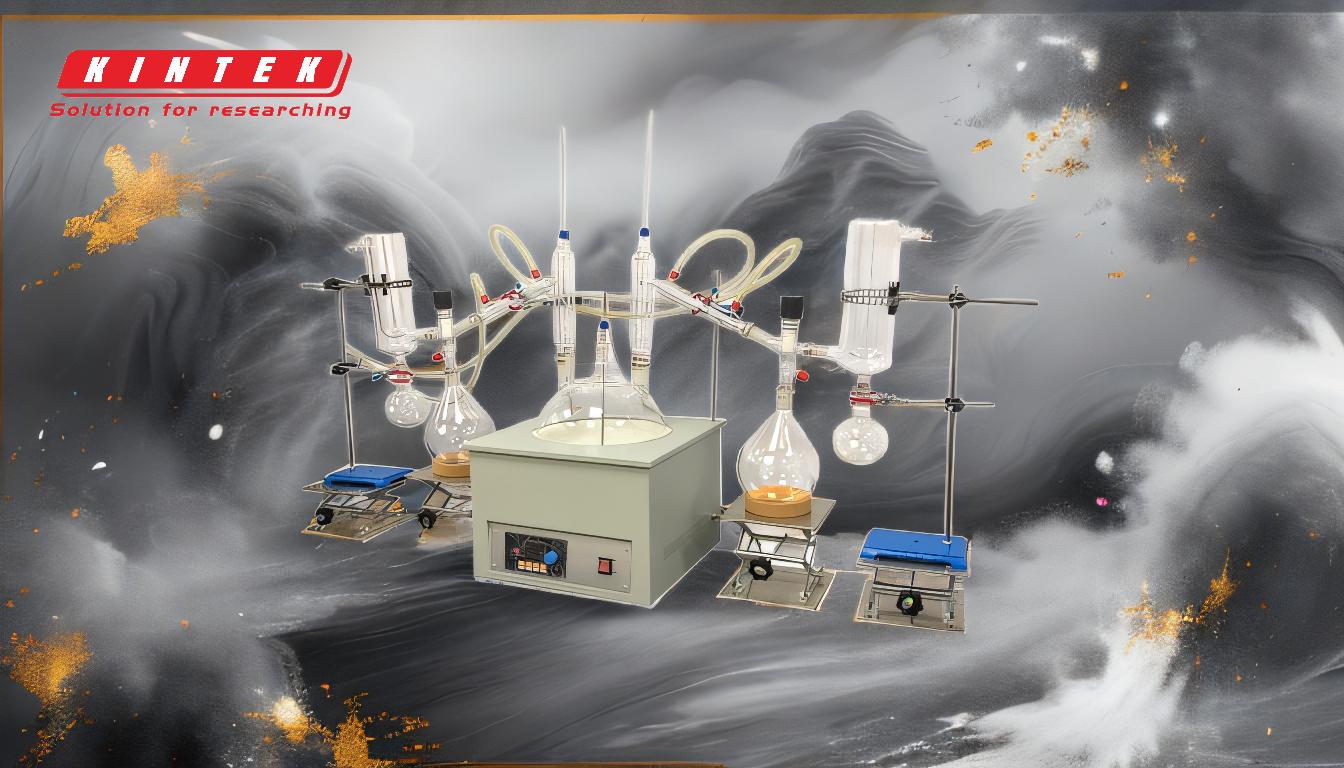Reduced pressure in vacuum distillation significantly lowers the boiling points of compounds, enabling the process to occur at milder temperatures. This is particularly beneficial for heat-sensitive substances, as it minimizes the risk of thermal degradation and ensures the preservation of product integrity. The use of a vacuum system also enhances cost-effectiveness, allows for system flexibility, and results in high-purity end products. Overall, reduced pressure in vacuum distillation improves safety, efficiency, and product quality.
Key Points Explained:

-
Lower Boiling Points at Reduced Pressure:
- When a vacuum is applied during distillation, the pressure inside the system decreases. According to the principles of thermodynamics, boiling points of compounds are directly related to the surrounding pressure. Lower pressure means lower boiling points, allowing substances to evaporate and condense at much lower temperatures than they would at atmospheric pressure.
-
Protection of Heat-Sensitive Compounds:
- Many organic compounds, especially those used in pharmaceuticals, cannabis, and other industries, are sensitive to high temperatures. Excessive heat can cause degradation, chemical reactions, or loss of desired properties. By operating at reduced pressure, vacuum distillation ensures that these compounds remain stable and intact throughout the process.
-
Prevention of Thermal Decomposition:
- High temperatures can lead to thermal decomposition, where compounds break down into unwanted byproducts. Reduced pressure in vacuum distillation minimizes the heat history of the product, preventing decomposition and ensuring the purity of the final distillate.
-
Cost-Effectiveness and System Flexibility:
- Vacuum distillation systems are often more cost-effective than alternative methods, such as high-temperature distillation. Additionally, these systems can be easily modified to accommodate different materials or processes, making them versatile for various applications.
-
High-Purity End Products:
- The controlled environment of vacuum distillation, with its lower temperatures and reduced pressure, ensures that the final product is of high purity. This is particularly important in industries like cannabis, where the goal is to produce fully decarbed and potent compounds like THC without impurities.
-
Safety and Efficiency:
- Operating at lower temperatures reduces the risk of combustion or adverse reactions, making the process safer for both operators and the materials being distilled. The efficiency of the process is also improved, as the reduced pressure allows for faster evaporation and condensation cycles.
-
Application in Short Path Distillation:
- In short path distillation, the use of a vacuum is critical. The short distance between the evaporator and condenser, combined with reduced pressure, ensures minimal heat exposure and rapid separation of compounds. This method is ideal for sensitive materials that require precise control over temperature and pressure.
-
Radiant Heat Emission and Short Residence Times:
- High vacuum distillation systems often utilize the heat of condensation for radiant heat emission. This approach maintains low distilling temperatures and short residence times, further protecting the integrity of the compounds being distilled.
By leveraging reduced pressure in vacuum distillation, industries can achieve safer, more efficient, and higher-quality distillation processes, particularly when dealing with delicate or valuable materials.
Summary Table:
| Key Benefit | Explanation |
|---|---|
| Lower Boiling Points | Reduced pressure lowers boiling points, enabling distillation at milder temps. |
| Protection of Heat-Sensitive Compounds | Minimizes thermal degradation, preserving product integrity. |
| Prevention of Thermal Decomposition | Reduces risk of compound breakdown, ensuring purity. |
| Cost-Effectiveness | More affordable than high-temperature methods, with flexible system options. |
| High-Purity End Products | Controlled environment ensures clean, potent distillates. |
| Safety and Efficiency | Lower temps reduce combustion risks and improve process speed. |
| Short Path Distillation | Ideal for sensitive materials with minimal heat exposure. |
| Radiant Heat Emission | Maintains low temps and short residence times for compound protection. |
Ready to enhance your distillation process? Contact us today to learn more about vacuum distillation solutions!












